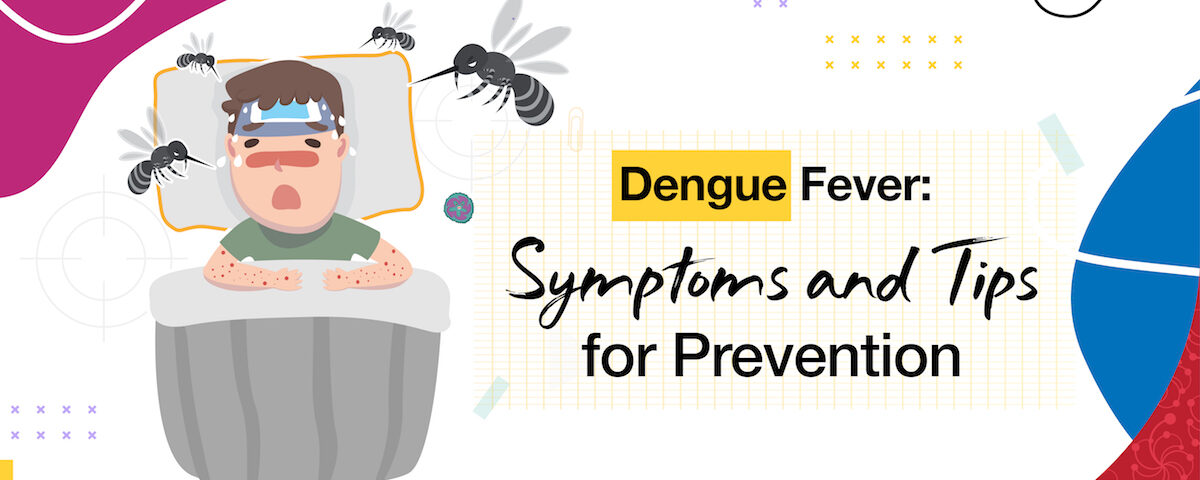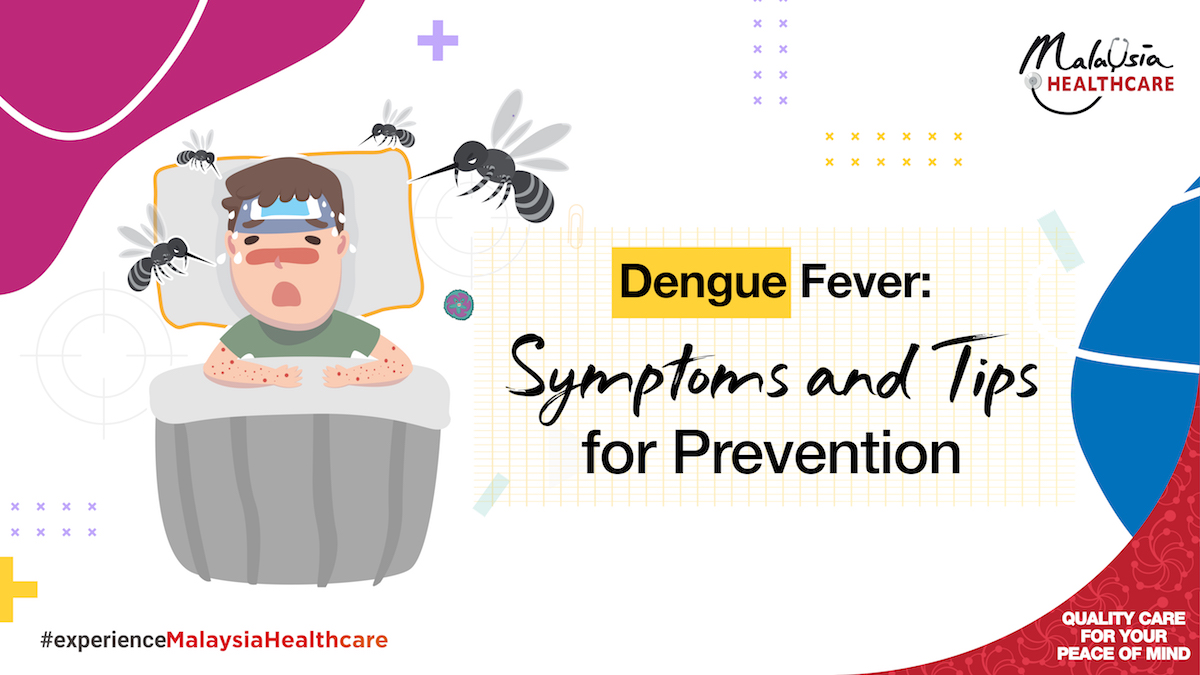Malaysia Healthcare Chronicles
Dengue Fever: Symptoms and Prevention Tips


Never imagine that mosquito bites can be so deadly? The most dangerous types of mosquitoes are Anopheles, Aedes, and Culex. Aedes itself spreads diseases like Zika, dengue, and yellow fever.
Many of you might be familiar with the name Aedes, as it is widely recognised as the primary cause of dengue-related fatalities in Malaysia. However, what exactly is dengue?
Dengue is a disease typically spread through infected female Aedes aegypti (Egyptian tiger) mosquitoes passing the virus from one person to another through mosquito bites.
In 2023, the Ministry of Health Malaysia reported a total of 123,133 dengue cases nationwide, reflecting a surge of over 85% compared to the cases recorded in 2022.
Symptoms of Dengue
A person infected with dengue might experience various symptoms such as high fever, nausea, pain in the back of the eyeballs, fatigue, and severe muscle and joint pain.
These symptoms can progress to severe complications like dengue hemorrhagic fever (DHF) or dengue shock syndrome (DSS) with warning signs such as severe internal bleeding, low platelet counts, plasma leakage, and organ impairment.
This is also the reason dengue fever needs timely attention and treatment, as it can cause death.
Dengue Prevention
There are measures that we can take to prevent dengue from spreading which include:
1. Reduce Mosquito Habitat
Mosquitoes breed in stagnant water left unattended in places like flowerpots, septic tanks, or water pipes containing still water. Always get rid of standing water or keep it covered to reduce mosquito habitats.
2. Use Mosquito Repellent
Repel mosquitoes by applying mosquito repellent both outdoors and indoors. It’s important to choose mosquito repellent with the active ingredient N,N-Diethyl-meta-toluamide, also known as DEET, which offers long-lasting and wide-ranging protection.
3. Wear Protective Clothing
Keep your skin covered when outdoors, especially near nature. Whether strolling around the neighborhood or hiking, always wear long sleeves or a jacket to prevent mosquito bites.
4. Avoid Endemic Areas
Identify dengue hotspot areas and avoid travelling to those destinations. If your neighborhood happens to be a hotspot, take extra precautions as discussed in the previous points.
While experts have warned of an impending peak in dengue fever cases in 2024 and 2025, we urge everyone to learn about the importance of collective action in implementing preventive measures against dengue fever.



